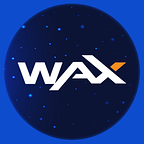The Ultimate in Safe Anonymity: Why Transfer Agents and Tokenization are the Solution
The advent of blockchain has enabled a network of users to maintain and update a general ledger of ownership through cryptography. This is known as tokenization, and it allows individuals to exchange real-world items at low costs with minimal risk. However, tokenization only enforces ownership of items on the blockchain. The delivery and facilitation of goods still need to be reconciled with what occurred on the blockchain.
The Worldwide Asset eXchange™ (WAX), a decentralized peer-to-peer marketplace for video game virtual goods, solves this problem by implementing a dual-layered governance structure to monitor and execute the sale of virtual items off of the blockchain. This enables WAX to expand the realism within virtual worlds and fractionalize revenue streams of centralized exchanges to network participants.
WAX Governance Structure
WAX uses a delegated proof-of-stake consensus model to ensure network consensus. Participants stake WAX Tokens (market abbreviation ‘WAX’) to vote on nodes to delegate their responsibilities to. “Guilds” are elected nodes on the WAX platform that confirm transaction on the blockchain. They act as an oversight committee on behalf of stakeholders (individuals who staked their WAX Tokens to elect the Guild) and resolve disputes. Guilds can only specialize in one game platform and are incentivized to ensure network trust by taking a percentage of transaction sales. If they do not ensure trust on the network, they will be removed from power and forfeit their staked tokens.
The second governance layer to the WAX platform are specialized users known as Transfer Agents (TAs). Similar to freighters shipping physical goods, Transfer Agents are accountable for the logistics of virtual assets between a buyer and a seller. See Figure 1 below for all TAs responsibilities.
Figure 1
Transfer agents are bonded by staking a bond of WAX tokens that must exceed 25% of total value of currently assigned Settlement Execution Contacts. If transfer agents are not ensuring quality standards, it is in the Guild’s best interest to remove them from the network. If not, shareholders who lost their stake due to low performance will reject the Guild.
Buyers, Sellers, Guilds, and Transfer Agents have rating systems equivalent to that of Amazon or Uber. Each time two parties interact, they rate each other. This creates a weighted calculation to predict a party’s reputation. The buyer’s and seller’s contact information will be encrypted and submitted through a multi-party scheme of each Guild on the server, keeping their information anonymous on the network. Engraving reputation and confidentiality into the WAX protocol establishes healthy market competition and a secure, trusted environment.
“Jobs of the future will arrive as WAX creates entirely new
avenues for users to generate revenue similar to that of
Amazon and Airbnb.”
Expanding the Gaming Ecosystem
Many games do not provide services for the exchange of assets. With WAX, all games are given the ability to transfer virtual goods physically during gameplay, not digitally between users. Jobs of the future will arrive as WAX creates entirely new avenues for users to generate revenue similar to that of Amazon and Airbnb. This model disrupts centralized exchanges by fractionalizing revenues to in-game users. In turn, games will develop true digital economies that expand the in-game experience and realism within virtual worlds.
WAX’s Delegated Proof-of-Stake model and off-chain governance establish the standards for creating network trust on distributed servers. The combination of delegated proof-of-stake, Transfer Agents, and rating systems enables economies to organically emerge in virtual worlds and create new revenue models for users.
